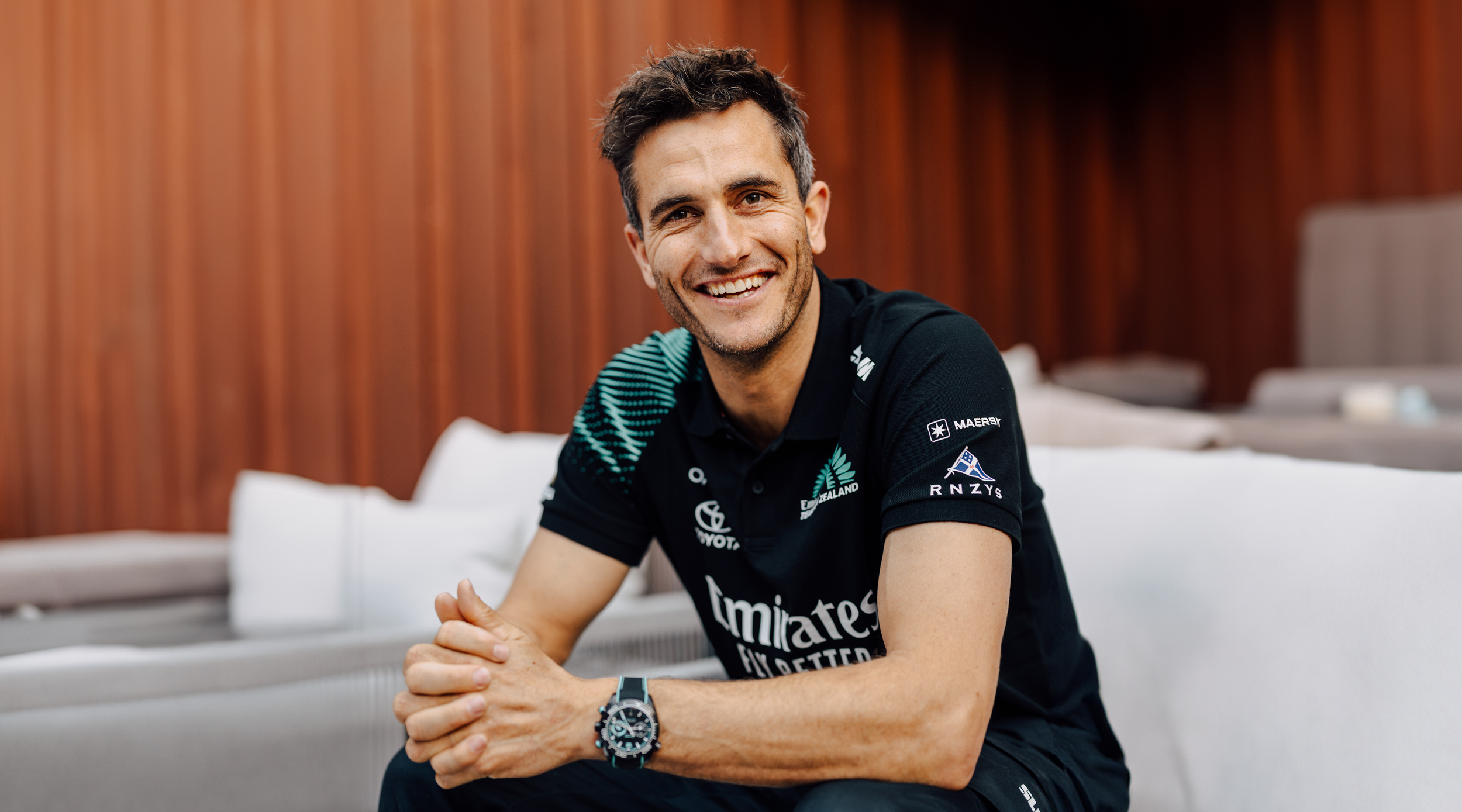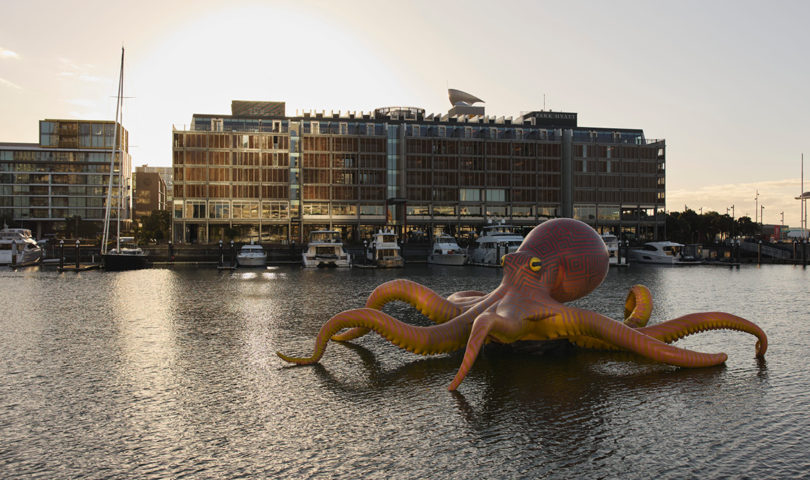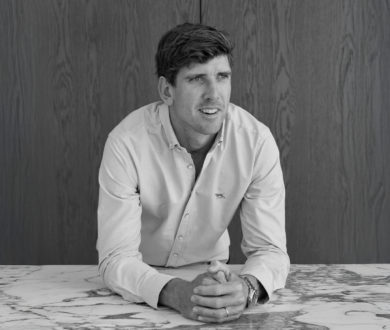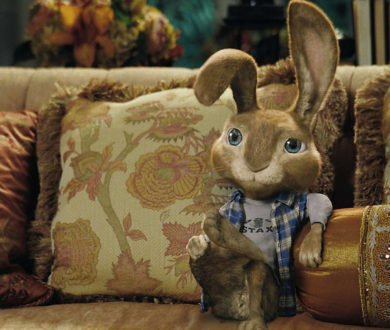Having achieved the kind of enduring professional success only afforded to few, Blair Tuke has spent the better part of the past two decades solidifying himself as one of the country’s sporting greats. Steadfast and resolute in his pursuit of excellence, Tuke takes his mantle as a representative of our country very seriously indeed. We sat down with Tuke in a sun-soaked room overlooking the Waitematā Harbour before he left for Barcelona — a more than fitting backdrop to discuss the sailor’s storied career, his drive to give back to the world’s oceans, and finding calm in the chaos and busyness of life.
At present, Blair Tuke is battling it out with his teammates for a hat trick at the 37th America’s Cup. But when we met a few months back, the sailor was cool, calm, and collected, wholly focused on the job ahead. But nonetheless generous with his time. On first impressions, you could be fooled into thinking that Tuke is just an everyday Kiwi — all rugged good looks and self-deprecating charm. But once the subject of sailing comes up, something switches in him, and it’s clear that this is someone dedicated to their craft in a way that is all-consuming, stretching out to touch every corner of his life.
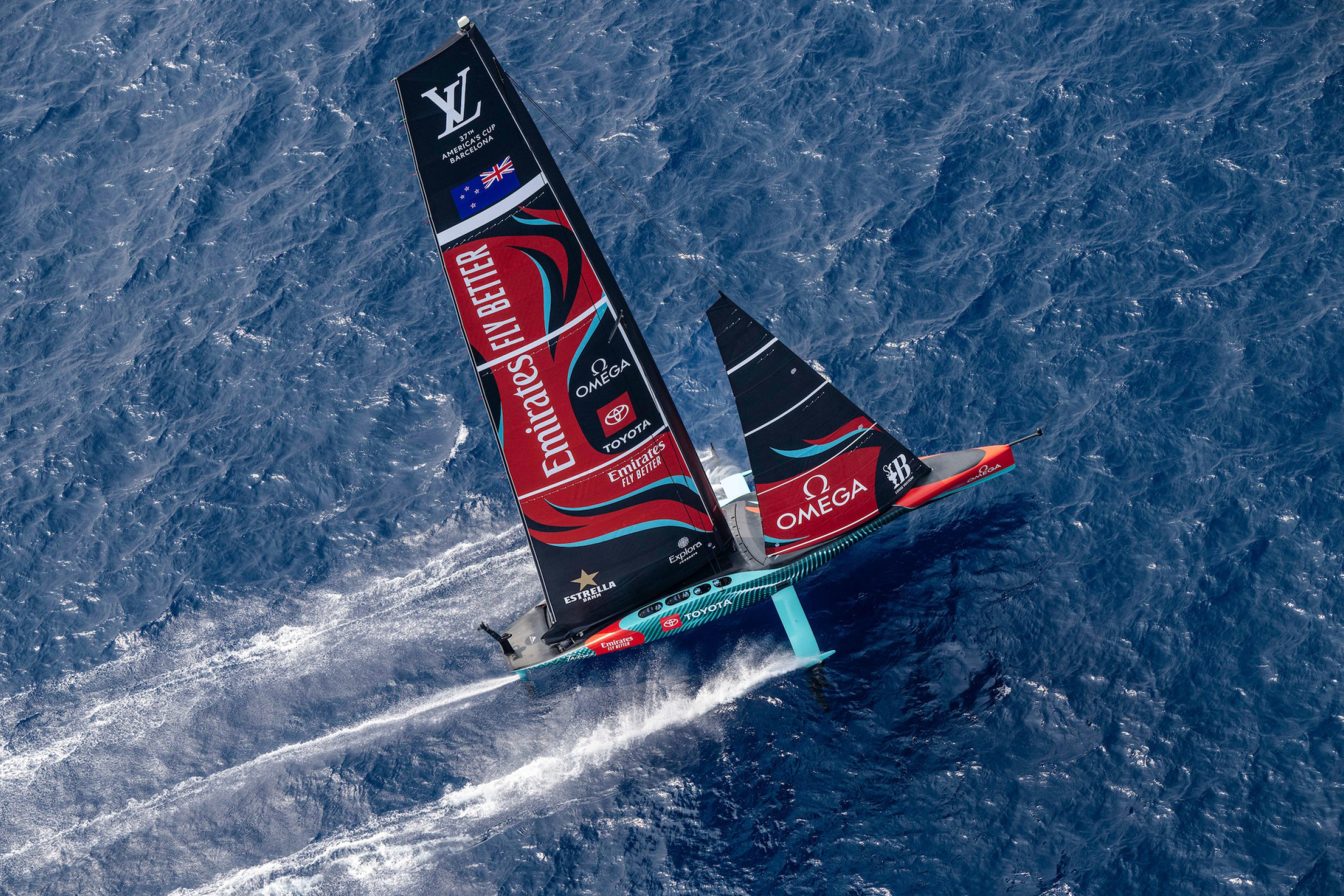
Tuke fell in love with sailing as a boy, in his hometown of Kerikeri (a place he still calls home today), where, he tells me, he grew up in and around the ocean. His introduction to sailing was on the family yacht when, aged 11, he began joining his father on yearly pilgrimages to Fiji. Around this same time, Tuke was entrusted with a boat of his own — a P-class that his parents gave him one Christmas. By his own account, he got the hang of it pretty quickly, and the rest, as they say, is history. The boat not only ultimately led to him becoming one of the world’s most revered and successful sailors, but instilled in him a fundamental sense of pragmatism that saw him in good stead, “Being in charge of a sailing boat at 11 years old, that you have to launch into the water, take out, bring back in — everything sits with you, and you have a lot of freedom in that, but also a lot of responsibility,” Tuke recalls, “As a kid, that was pretty cool, and it taught me a lot at a young age.”
Once he got the hang of things, it wasn’t long before he was spending much of his spare time sailing, getting into competitions quite organically at about 14, which is when he realised he was “relatively good at it” (his words). “At that stage, I had no idea where it was going to go. But when Pete [Burling] and I teamed up to take on the 2012 Olympics when I was 19, I decided to go all in and see where it took me.” Tuke recalls, “It was only when we returned with an Olympic medal and signed with Team New Zealand that I realised I could really make something of myself as a sailor.” And make something he did. In fact, Tuke has seen the type of incredible, enduring success that many athletes only dream of, with an unfathomably lengthy list of accolades under his belt with, I’m certain, many more still to come. I point out to Tuke that his Wikipedia page drew my attention to the fact that he hasn’t stopped for the better part of two decades. He laughs, shrugs, and tells me that he’s definitely not “the young guy” anymore, indicating that it’s not as easy as it once was. I ask how he manages to keep operating at such a high level, relentlessly, without burning out, and his answer is “not standing still for too long,” before adding that there have been a number of different challenges across his career, at different stages of his life, and a willingness to adapt and change is the key to keeping going.
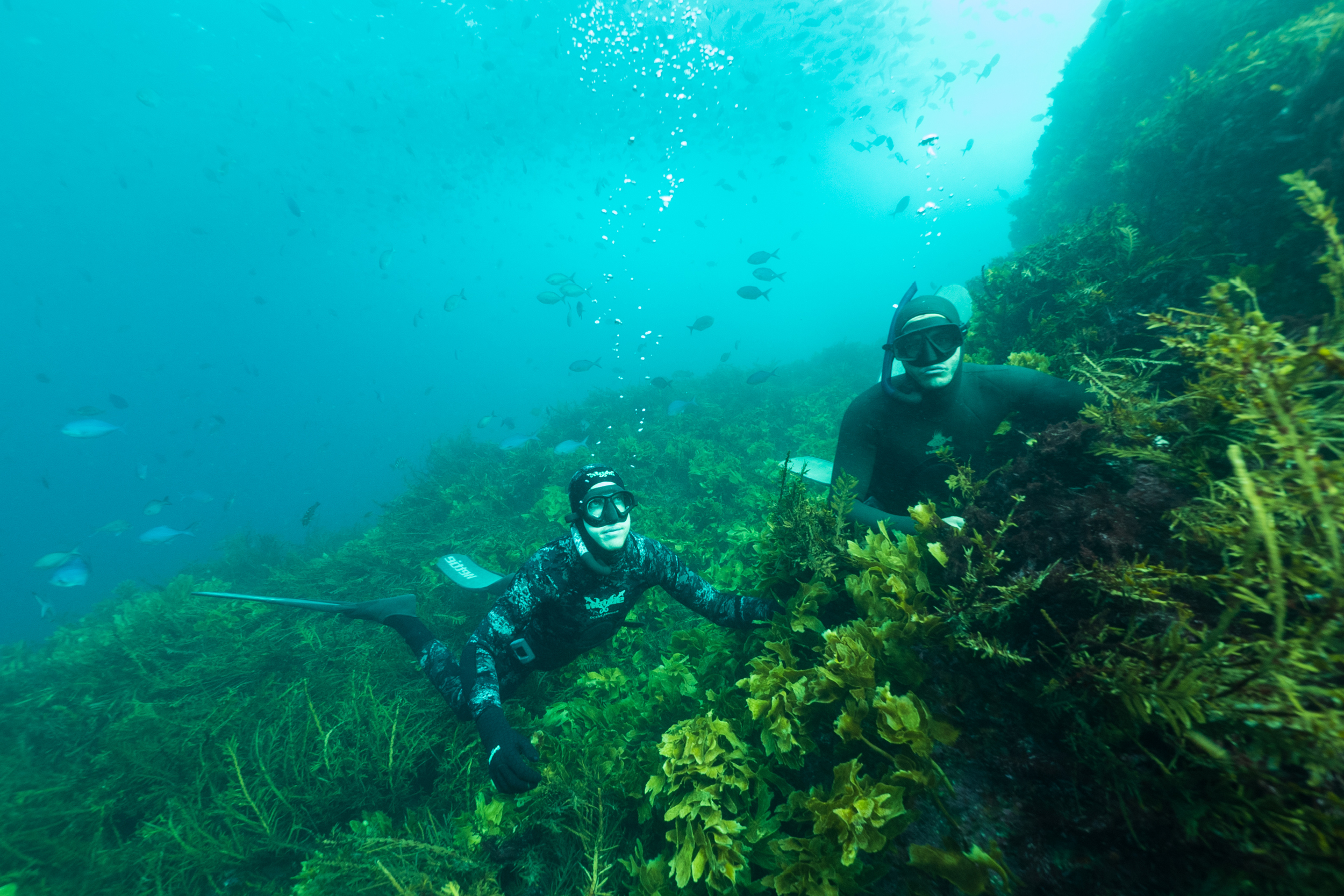
“Anything we take on, we now do with a lens of how we’re going to use that platform or the hype that’s generated around an event to drive awareness and action for the ocean.”
But it’s not just tackling challenges in the sailing world that keeps Tuke motivated these days. He and Burling founded a charitable foundation, Live Ocean, in 2019, and it’s clear in how he lights up when discussing their progress in bettering the state of Aotearoa’s oceans, that this is important work particularly close to his heart. “Live Ocean has been a huge motivator for us,” Tuke tells me, “Anything we take on, we now do with a lens of how we’re going to use that platform or the hype that’s generated around an event to drive awareness and action for the ocean.”
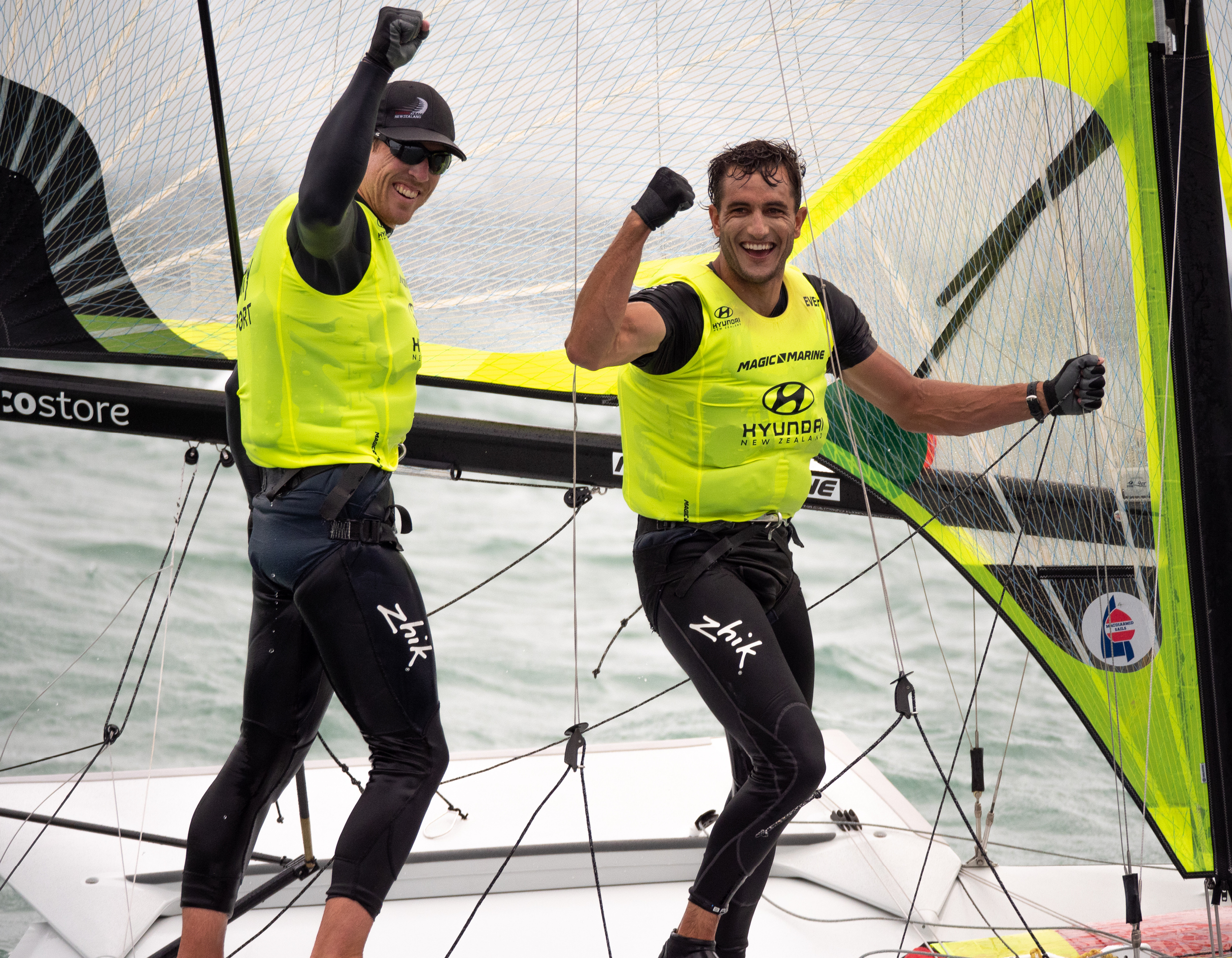
Spending so much of their lives on the water, Tuke and Burling are privy to the many issues the ocean faces — most of which are out of plain sight. But it was sailing around the world in the 2017-18 edition of The Ocean Race (known then as the Volvo Ocean Race), when the pair realised just how urgent an issue ocean health is. Upon returning home, the sailors didn’t want to simply use their collective profile to raise awareness, they wanted to leverage their position to incite substantive change (“Aotearoa has a special role to play as guardians of one of the largest and most significant ocean spaces on the planet, and as New Zealanders, we need to step up and act with urgency and decisiveness.” Tuke says ardently). How does he feel about making a real difference to the state of our oceans? “It’s a huge privilege.” Sport plays a significant role in bringing people around the biggest issues of our time, and for Tuke and Burling, if they can use their platform as sportsmen to make even a small difference, it’s worth it.
The ocean, it seems, is the anchor point to Tuke’s life; a central axis that everything is, in one way or another, tethered to. “I race sailboats for a living, but it was always the ocean first for me,” he admits, “And if I wasn’t doing this, I’d be doing something else connected to the sea.” Tuke’s connection to the water is something that began as a child and has only deepened in time. So much so, that it seems the sailor spends his entire life on, near, or in the ocean. “I’ll spend, you know, 150 to 200 days a year racing boats, but then I’ll also spend at least half of that time again on or in the water.” I jest that it seems like all of his hobbies are ocean-based, too, “I guess all of them are, yeah,” he laughs in his easy manner, telling me that fishing, diving, and surfing are what he does to relax.
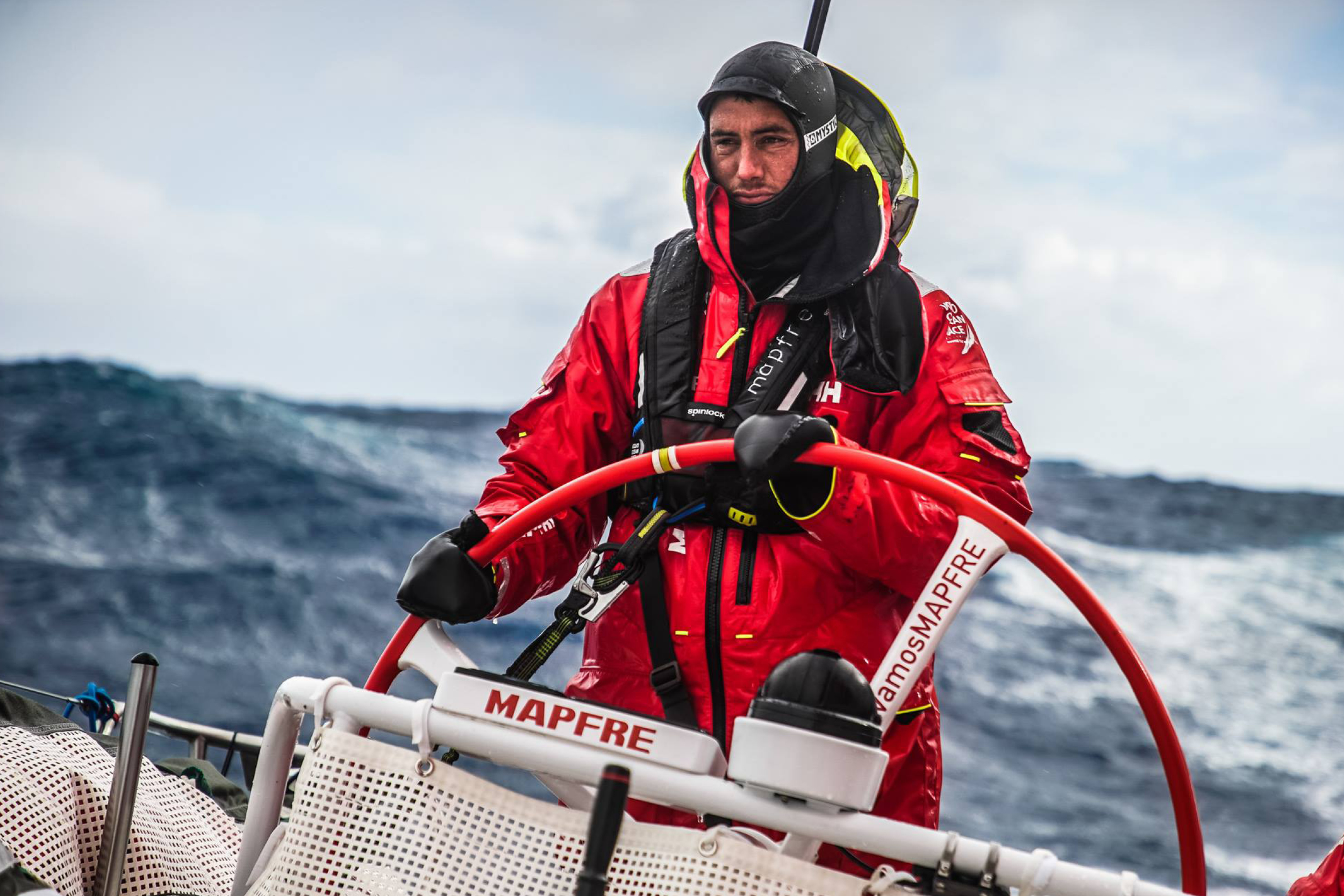
I’m intrigued as to whether he ever finds time to sail, just for fun. He doesn’t, at the moment, but he assures me that his love for the sport is very much still there, and when life slows down a little, he’ll “get back to it.”
As someone who has never stepped foot on a sailboat, I’m interested in what it is that he loves most about the sport, and, expecting something specific or technical relating to his craft, his winsome answer is so beautiful it catches me off guard. “When you’re on the water, life slows down,” he reasons, “there’s this incredible sense of freedom and presence you have when you’re on the ocean. It’s forever changing, with the currents or the wind or the weather; when it comes to the wildlife you see, or the experience you’ll have, it’s always different,” he pauses, adding, “you’ll never experience the exact same thing twice, and I think that’s what’s so special about it.” Not a mention of strategy or competition or physical challenges in sight, and I start to get the sense that the sea has given Tuke much more than simply a career.
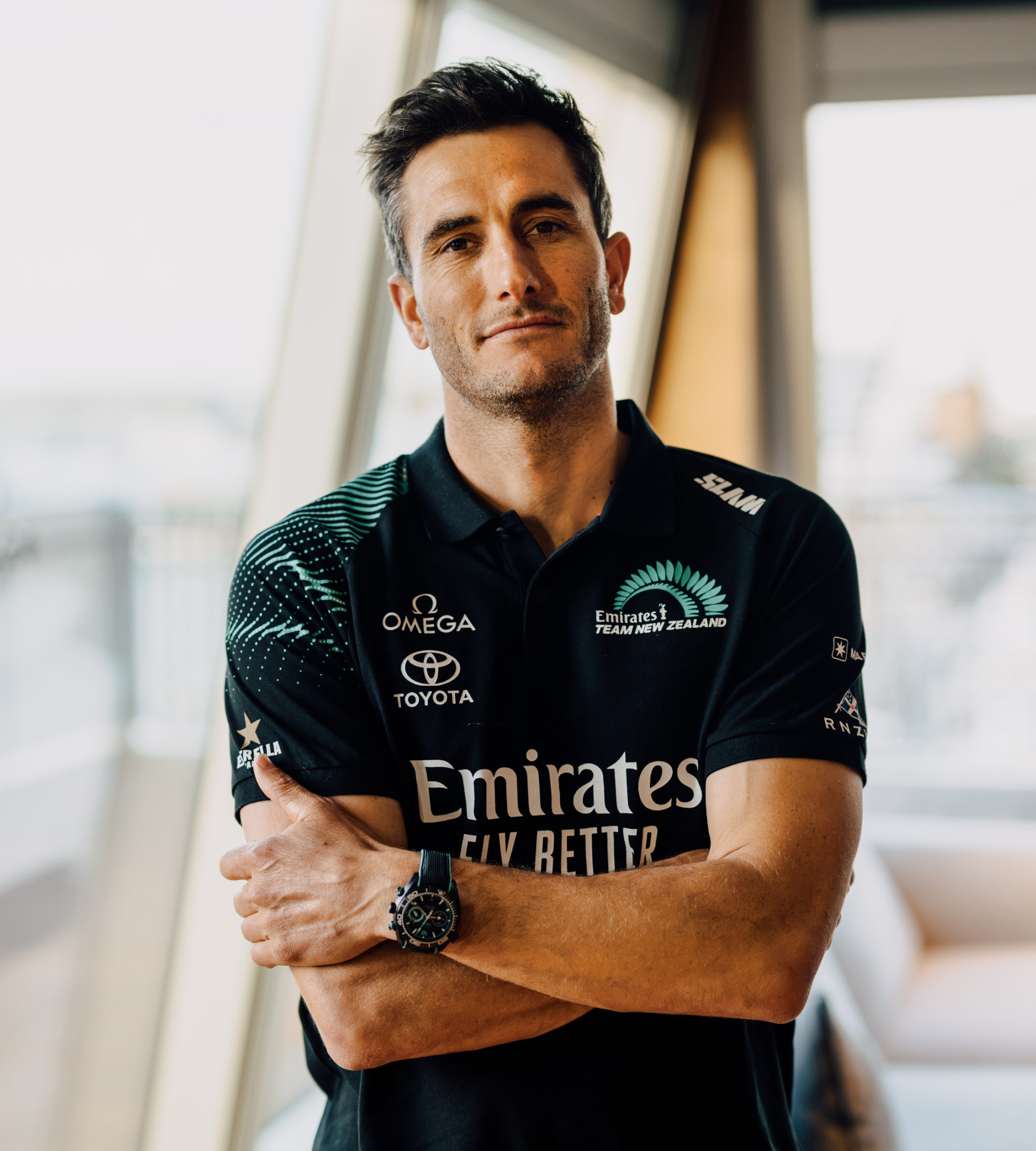
When it comes to what’s next, or whether there are any plans to slow down or stop, Tuke is focussed on what lies immediately ahead in Barcelona, and mentions his work as Co-CEO of the Black Foils, New Zealand’s SailGP team which he’s committed to growing alongside Burling. And (maybe), finding some respite post-Cup. Beyond that, it very much sounds like it’s full steam ahead, as I’ve quickly come to find isn’t at all surprising.
Tuke begins telling me about the importance of rest and balance when it comes to what he does, and finding time to either celebrate or recalibrate post a big competition, but cuts himself off as the World Ocean Race pops into his mind. “That loss was a tough pill to swallow,” he recalls, “I’d say that there’s definitely unfinished business there,” he hints at plans to give it another go, saying that his love of ocean racing is no secret.
But that can wait. For now, post-Cup, he’s heading home to enjoy the Kiwi summer. Most of which, I imagine, will be spent in the place that has offered him an incredible, history-making career, and so much more — the ocean.

